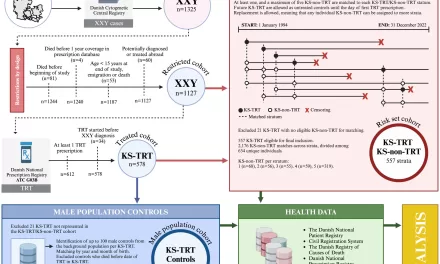Washington, D.C. – Federal funding for medical research has declined by approximately $1 billion this year, raising concerns among universities, medical centers, and lawmakers who warn that the funding shortfall could hinder progress in research on cancer, diabetes, and heart disease.
The National Institutes of Health (NIH) has seen its grant review process disrupted after the Trump administration abruptly canceled scheduled funding meetings due to a temporary communications freeze. While some of those meetings have since resumed, experts warn that delays could stall new research projects and critical medical advancements.
This funding drop coincides with administrative delays and policy changes under the Trump administration, including a contentious decision to reduce NIH payments for research facilities and administrative costs. A federal judge in Massachusetts has temporarily blocked these cuts, pending further hearings.
Significant Reduction in Grant Awards
Federal records indicate that the NIH awarded roughly $2.5 billion in grants in the first six weeks of 2024. However, in the same period this year, that figure has dropped to $1.4 billion—hundreds of millions of dollars lower than the average amount awarded over the past six years.
Critics argue that the funding cuts are detrimental to the advancement of medical science.
“The president has completely stopped funding for research that discovers cures for diseases that devastate families across the country, like cancer and Alzheimer’s disease, all so he can give tax breaks to billionaires and big corporations,” said U.S. Sen. Tammy Baldwin (D-Wis.). “Make no mistake, their efforts to rob Peter to pay Paul means crushing families’ hopes and dreams of having cures.”
The NIH typically distributes approximately $36 billion in grants annually, supporting research in fields such as gene therapy, immune-based cancer treatments, cystic fibrosis, and sickle cell disease. Without full funding, experts warn that critical projects could be delayed or terminated.
Political Battle Over NIH Funding
U.S. Sen. Patty Murray (D-Wash.) attempted to reinstate NIH funding to previously agreed-upon levels through a budget bill. However, the effort was defeated in a party-line vote.
“Trump and Elon—either through sheer ignorance or a genuine lack of caring—are putting lifesaving research in America on life support,” Murray said, referring to billionaire Elon Musk and his reported influence over White House budget decisions.
Musk heads the Trump-created U.S. Department of Government Efficiency (DOGE), which has made sweeping budget cuts to multiple federal agencies, including the NIH.
The NIH has also faced internal turmoil, with two high-ranking officials resigning suddenly and the agency still without a permanent director. Meanwhile, Trump’s nominee to lead the NIH, Stanford professor Dr. Jay Bhattacharya, is preparing for Senate confirmation hearings in the coming weeks.
Uncertainty Over NIH’s Future
Robert F. Kennedy Jr., the new secretary of health and human services (HHS), has suggested shifting NIH’s focus from infectious disease research to chronic conditions such as diabetes and heart disease. NIH operates under HHS, making Kennedy’s stance particularly consequential.
The proposed cuts have sparked widespread concern among research institutions.
“If the federal government cuts its investment, we will have to scale back on research, and cutting-edge science will be cut short,” Dean Madden, vice provost for research at Dartmouth’s medical school, said at a recent press conference. “You don’t know what discoveries won’t be made as a result, but they might include a cure for some childhood cancer or treatment for Alzheimer’s or dozens of other diseases that afflict patients across our country.”
Disclaimer:
This article is based on current information and statements from officials, policymakers, and researchers. The situation regarding NIH funding remains fluid, and future developments may alter the context and implications of these budget changes. Readers are encouraged to refer to official government sources and news updates for the latest information.
2025 HealthDay.











